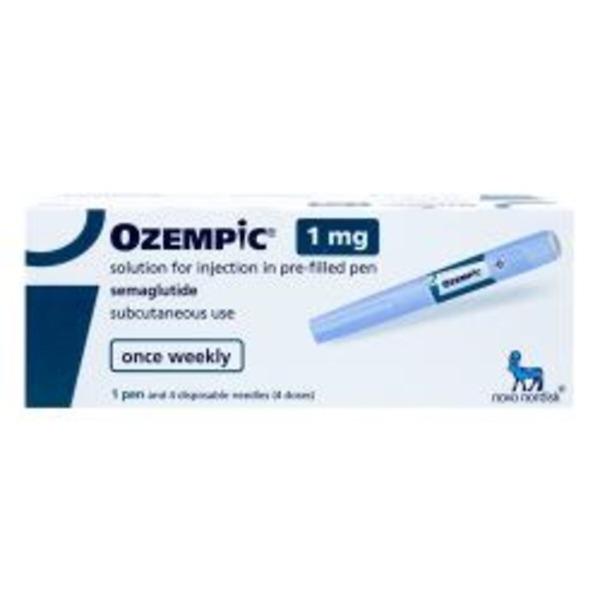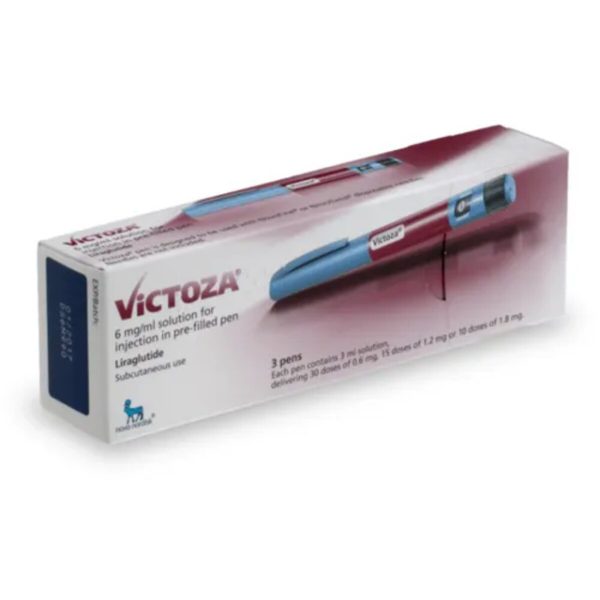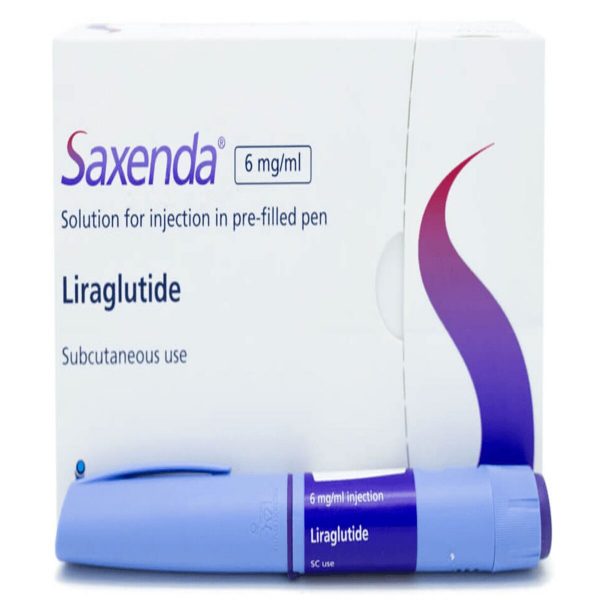- Description
- Additional Information
- Brand
- How To Use
- Product Details
- Side Effects
- Ingredients
- How to Store
- Patient Information leaflet
- Reviews (0)
- Questions & Answers
Byetta Injection Pen – Exenatide Injection, 60 Dose
Byetta Injection is a revolutionary injectable medicine that contains the active substance exenatide, specifically designed to improve blood sugar control in adults with type 2 (non-insulin dependent) diabetes mellitus. Byetta that comes in a sterile, ready-to-use pre-filled injectable pen.
Byetta Injection is available in 2 strengths:
- Byetta 10mcg Injection
- Byetta 5mcg Injection
With its advanced formula, Byetta Injection has been clinically tested and proven to help lower blood sugar levels, decrease appetite, and promote weight loss in patients with type 2 diabetes. It works by mimicking the actions of the hormone GLP-1, which stimulates the pancreas to produce more insulin and reduces the liver’s production of glucose.
Byetta Injection is easy to use and is available in a range of doses to meet the needs of each individual patient. It is recommended that it be taken twice daily, 60 minutes before a meal. The pen is designed to be administered subcutaneously, or just below the skin, making it a convenient and virtually painless option for patients.
Byetta Injection has been shown to significantly improve glycemic control, reduce hemoglobin A1C levels, and lower fasting and postprandial glucose levels in patients with type 2 diabetes. Patients who have used Byetta Injection have reported improved quality of life, increased energy, and a greater sense of well-being.
Byetta Pen is an approved medication and is available by prescription only. It is an essential tool in the management of type 2 diabetes and can be used alone or in combination with other diabetes medications to achieve optimal glycemic control. If you or a loved one is living with type 2 diabetes, talk to your healthcare provider about Byetta Injection and see if it is the right option for you.
Byetta Injection Pen – Exenatide Injection Reviews
After using Byetta Injection Pen – Exenatide Injection, it’s helpful to let others know about your experience. Reviews of an item help other users know that medicines received have helped the condition it is claimed for, how well the treatment worked or any issues to be aware of. We invite our users to leave a review of both their treatment and of the service provided. Click on the reviews tab to see if there has been feedback on this item.
What is the price of Byetta Injection?
The price of Byetta Injection Pen is £125.45
Where can you buy Byetta Injection?
You can buy Byetta Injection at Dock Pharmacy Essex UK, UK Online Pharmacy.
Can you buy Byetta Pen Over the counter?
Byetta Injection is not available to buy over the counter. You need a prescription to buy Byetta Pen
| Brand | |
|---|---|
| Strengths | 10mcg Injection Pre-filled Pen, 5mcg Injection Pre-filled Pen |
Brand
BYETTA
How To Use
How to use Byetta
Always use this medicine exactly as your doctor, pharmacist, or diabetes nurse has told you.
Check with your doctor, pharmacist, or diabetes nurse if you are not sure.
Two strengths of Byetta are available: Byetta 5 micrograms and Byetta 10 micrograms.
Your doctor may tell you to use Byetta 5 micrograms twice a day to start with.
After using Byetta 5 micrograms twice a day for 30 days the doctor may increase your dose to Byetta 10 micrograms twice a day.
If you are over 70 years old or have problems with your kidneys it may take longer than 30 days to tolerate the Byetta 5 micrograms dose and so your doctor may not increase your dose.
One injection of your pre-filled pen will give you your dose. Do not change your dose unless your doctor has told you to.
You should inject this medicine at any time within the 60 minutes (1 hour) before your morning and evening meals, or before your two main meals of the day, which should be about 6 hours or more apart.
Do not use this medicine after your meal.
You should inject this medicine under the skin (subcutaneous injection) of your upper leg (thigh), stomach area (abdomen), or upper arm.
If you are using Byetta and an insulin you must make two separate injections.
Product Details
What you need to know before you use Byetta
Do not use Byetta – If you are allergic to exenatide or any of the other ingredients of this medicine (listed in section 6). Warnings and precautions Talk to your doctor, pharmacist, or diabetes nurse before using Byetta about the following: – Using this medicine in combination with a sulphonylurea, as low blood sugar (hypoglycaemia) can occur. Ask your doctor, pharmacist, or diabetes nurse if you are not sure if any of your other medicines contain a sulphonylurea. – If you have type 1 diabetes or diabetic ketoacidosis (a dangerous condition that can occur in diabetes), as you should not use this medicine. – How to inject this medicine. It should be injected under the skin and not into a vein or into the muscle. – If you have severe problems with slow stomach emptying or food digestion, as the use of this medicine is not recommended. The active substance in this medicine slows stomach emptying so food passes more slowly through your stomach. – If you have ever had inflammation of the pancreas (pancreatitis) (see section 4). – If you lose weight too quickly (more than 1.5 kg per week) talk to your doctor about it since this may cause problems such as gallstones. – If you have severe kidney disease or you are on dialysis, as the use of this medicine is not recommended. There is little experience with this medicine in patients with kidney problems. Byetta is not an insulin and should therefore not be used as a substitute for insulin. Children and adolescents Do not give this medicine to children and adolescents less than 18 years as there is no experience with this medicine in this age group. Other medicines and Byetta Tell your doctor or pharmacist if you are taking, have recently taken, or might take any other medicines, particularly: – medicines that are used to treat type 2 diabetes that work like Byetta (e.g. liraglutide and prolonged-release exenatide), as taking these medicines with Byetta is not recommended. – medicines used to thin the blood (anticoagulants), e.g. warfarin, as you will require additional monitoring of changes in INR (measurement of blood thinning) during initiation of therapy with this medicine. Ask your doctor if the time at which you take any tablets should be changed because this medicine slows stomach emptying and can affect medicines that need to pass through the stomach quickly, e.g. – Stomach resistant tablets or capsules (e.g. medicines that reduce stomach acid (proton pump inhibitors)) that should not stay too long in your stomach, may need to be taken an hour before, or four hours after this medicine. – Some antibiotics may need to be taken an hour before your Byetta injection. – For tablets that you need to take with food, it may be best if they are taken at a meal at a time when this medicine is not being administered. Byetta with food Use this medicine at any time within the 60 minutes (1 hour) before your meal. (See section 3 “How to use Byetta”). Do not use this medicine after your meal. Pregnancy and breast-feeding It is not known if this medicine may harm your unborn child. If you are pregnant, think you may be pregnant, or are planning to have a baby, ask your doctor or pharmacist for advice before taking this medicine, as it should not be used during pregnancy. It is not known if exenatide passes into your milk. This medicine should not be used if breast-feeding. Driving and using machines If you use this medicine in combination with a sulphonylurea or insulin, low blood sugar (hypoglycaemia) can occur. Hypoglycaemia may reduce your ability to concentrate. Please keep this possible problem in mind in all situations where you might put yourself and others at risk (e.g. driving a car or using machines). Byetta contains metacresol Metacresol may cause allergic reactions. Byetta contains sodium This medicine contains less than 1 mmol sodium (23 mg) per dose, i.e. essentially “sodium-free”.
Side Effects
Possible side effects
Like all medicines, this medicine can cause side effects, although not everybody gets them. Severe allergic reactions (anaphylaxis) have been reported rarely (may affect up to 1 in 1,000 people). You should see your doctor immediately if you experience symptoms such as • Swelling of the face, tongue or throat (angioedema) • Rashes, itching and rapid swelling of the tissues of the neck, face, mouth or throat • Difficulty to swallow • Hives and difficulties to breathe Cases of inflammation of the pancreas (pancreatitis) have been reported (frequency not known) in patients receiving this medicine. Pancreatitis can be a serious, potentially life-threatening medical condition. • Tell your doctor if you have had pancreatitis, gallstones, alcoholism or very high triglycerides. These medical conditions can increase your chance of getting pancreatitis, or getting it again, whether or not you are taking this medicine. • STOP taking this medicine and contact your doctor immediately if you experience severe and persistent stomach pain, with or without vomiting, because you could have an inflamed pancreas (pancreatitis). Very common side effects (may affect more than 1 in 10 people): • nausea, (nausea is most common when first starting this medicine, but decreases over time in most patients) • vomiting • diarrhoea • hypoglycaemia When this medicine is used with a medicine that contains a sulphonylurea or an insulin, episodes of low blood sugar (hypoglycaemia, generally mild to moderate) can occur very commonly. The dose of your sulphonylurea or insulin medicine may need to be reduced while you use this medicine. The signs and symptoms of low blood sugar may include headache, drowsiness, weakness, dizziness, confusion, irritability, hunger, fast heartbeat, sweating, and feeling jittery. Your doctor should tell you how to treat low blood sugar. Common side effects (may affect up to 1 in 10 people): • dizziness • headache • feeling jittery • constipation • pain in the stomach area • bloating • indigestion • itching (with or without rash) • flatulence (passing gas) • increased sweating • loss of energy and strength • heartburn • reduced appetite This medicine may reduce your appetite, the amount of food you eat, and your weight. If you lose weight too quickly (more than 1.5 kg per week) talk to your doctor about it since this may cause problems such as gallstones. Uncommon side effects (may affect up to 1 in 100 people): • decreased in kidney function • dehydration, generally associated with nausea, vomiting and/or diarrhoea • unusual taste in the mouth • burping • injection site reactions (redness) • sleepiness • hair loss • weight decreased • a delay in the emptying of the stomach • inflamed gallbladder • gallstones Rare side effects (may affect up to 1 in 1,000 people): • intestinal obstruction (blockage in intestine) Not known (frequency cannot be estimated from the available data). In addition some other side effects have been reported: • bleeding or bruising more easily than normal due to low level of blood platelets. • changes in INR (measurement of blood thinning) have been reported when used together with warfarin. Reporting of side effects If you get any side effects, talk to your doctor, pharmacist or diabetes nurse. This includes any possible side effects not listed in this leaflet. You can also report side effects directly via the Yellow Card Scheme at www.mhra.gov.uk/yellowcard or search for MHRA Yellow Card in the Google Play or Apple App Store. By reporting side effects you can help provide more information on the safety of this medicine.
Ingredients
What Byetta contains –
The active substance is exenatide.
– Two pre-filled pens are available.
One to deliver doses of 5 micrograms and one 10 micrograms. –
Each dose of Byetta 5 micrograms solution for injection (injection) contains 5 micrograms exenatide in 20 microlitre.
– Each dose of Byetta 10 micrograms solution for injection (injection) contains 10 micrograms exenatide in 40 microlitre.
– Each millilitre (mL) of the solution for injection contains 0.25 milligrams (mg) of exenatide.
– The other ingredients are metacresol, (44 micrograms/dose in Byetta 5 micrograms solution for injection and 88 micrograms/dose in Byetta 10 micrograms solution for injection), mannitol, glacial acetic acid, sodium acetate trihydrate and water for injections
How to Store
How to store Byetta
Keep this medicine out of the sight and reach of children. Do not use this medicine after the expiry date, which is stated on the label and the carton after ‘EXP’. The expiry date refers to the last day of that month. Store in a refrigerator (2°C – 8ºC). Once in use, keep your pen below 25ºC for 30 days. Dispose of a used pen after 30 days, even if some medicine remains in the pen. Replace the cap on the pen in order to protect from light. Do not freeze. Throw away any Byetta pen that has been frozen. Do not use this medicine if you notice particles in the solution, or if it is cloudy or coloured. Do not store the pen with the needle attached. If the needle is left on, medicine may leak from the pen or air bubbles may form in the cartridge. Do not throw away any medicines via waste water or household waste. Ask your pharmacist how to throw away medicines you no longer use. These measures will help protect the environment.
Patient Information leaflet
Click here for the Patient Information leaflet
Please read before using the product
Only logged in customers who have purchased this product may leave a review.
Questions and answers of the customers
There are no questions yet, be the first to ask something for this product.
You Might Also Like
Strength: 0.5mg Pre-Filled Pen
Learn More£157.50
- Availability: in stock
Strength: 1mg Pre-Filled pen
Learn More£169.50
- Availability: in stock
Bydureon 2mg Injection BCISE – Exenatide Injection, 4 Pre-Filled Pen Introducing Bydureon 2mg Injection BCISE, an injectable medicine designed to improve blood sugar control for people 10 years and over with Type 2 diabetes. With its active ingredient exenatide, Bydureon helps to reduce the amount of glucose (sugar) in your blood. All you need is […]
Learn More£110.04
- Availability: in stock
£110.50 – £164.50
Victoza is available as Pack of 2 and Pack 3 injections
Learn More£110.50 – £164.50
- Availability: out of stock
size: Pack of 5
Learn More£230.00
- Availability: out of stock
Other Products From This Seller
Original price was: £34.99.£24.95Current price is: £24.95.
Wahl Extreme Grip Beard Trimmer Precision Grooming with Comfort Grip and Adjustable Cutting Lengths Take Control of Your Grooming with the Wahl Extreme Grip Beard Trimmer Transform your grooming routine with the Wahl Extreme Grip Beard Trimmer, designed for precision, comfort, and versatility. Whether you’re sculpting a sharp beard line, maintaining stubble, or styling longer […]
Learn MoreOriginal price was: £34.99.£24.95Current price is: £24.95.
- Availability: in stock
Original price was: £23.99.£17.95Current price is: £17.95.
WAHL Vogue Corded Hair Clipper for Men Professional Precision with Adjustable Taper Lever and High-Carbon Steel Blades Transform Your Grooming Routine with the WAHL Vogue Corded Hair Clipper for Men Elevate your grooming experience with the WAHL Vogue Corded Hair Clipper, a professional-grade grooming tool designed for men who value precision and performance. Whether you’re […]
Learn MoreOriginal price was: £23.99.£17.95Current price is: £17.95.
- Availability: in stock
Original price was: £30.00.£8.95Current price is: £8.95.
Wahl Peaky Blinders Beard Trimmer Gift Set Limited Edition Cordless Grooming Kit for Men Join the ranks of the Peaky Blinders with the Wahl Peaky Blinders Beard Trimmer Gift Set. This exclusive collaboration between Wahl and the iconic TV series offers a comprehensive grooming solution for the modern gentleman. Key Features: Rechargeable Cordless Trimmer: Equipped […]
Learn MoreOriginal price was: £30.00.£8.95Current price is: £8.95.
- Availability: in stock
Original price was: £54.63.£39.95Current price is: £39.95.
OMRON RS2 Wrist Blood Pressure Monitor Compact and Accurate BP Monitoring The OMRON RS2 Wrist Blood Pressure Monitor is a compact and user-friendly device designed for quick and accurate blood pressure and pulse rate measurements. Utilizing the oscillometric method, it ensures reliable readings with minimal user input. Key Features: Automatic Inflation: The device inflates the […]
Learn MoreOriginal price was: £54.63.£39.95Current price is: £39.95.
- Availability: in stock
Original price was: £69.99.£59.99Current price is: £59.99.
Omron M4 Intelli IT Blood Pressure Monitor Bluetooth-Enabled Upper Arm BP Monitor with Intelli Wrap Cuff The Omron M4 Intelli IT Blood Pressure Monitor is a clinically validated device designed for easy and accurate blood pressure monitoring at home. With Bluetooth connectivity, it seamlessly syncs your readings to the Omron Connect app, allowing you to […]
Learn MoreOriginal price was: £69.99.£59.99Current price is: £59.99.
- Availability: in stock
Original price was: £39.99.£33.95Current price is: £33.95.
Omron M2+ Upper Arm Blood Pressure Monitor The Omron M2+ Upper Arm Blood Pressure Monitor is a fully automatic device designed to provide quick and accurate blood pressure and pulse rate measurements. Utilizing the oscillometric method, it ensures reliable readings with minimal user input. Key Features: IntelliSense Technology: Automatically inflates the cuff to the ideal […]
Learn MoreOriginal price was: £39.99.£33.95Current price is: £33.95.
- Availability: in stock
Original price was: £19.99.£9.95Current price is: £9.95.
Ted Baker M Gift Set 30ml EDT Spray and 150ml Body Wash Experience the refined elegance of the Ted Baker M Gift Set, comprising a 30ml Eau de Toilette Spray and a 150ml Body Wash. This meticulously crafted set offers a harmonious blend of notes, encapsulating masculinity and sophistication. Ideal for gifting or personal indulgence, […]
Learn MoreOriginal price was: £19.99.£9.95Current price is: £9.95.
- Availability: in stock
Original price was: £33.00.£19.99Current price is: £19.99.
Iceberg Twice Pour Homme Eau de Toilette 125ml Gift Set Aromatic Fougère Fragrance for Men Discover the timeless elegance of Iceberg Twice Pour Homme Eau de Toilette 125ml Gift Set, a sophisticated aromatic fougère fragrance designed for the modern man. This exclusive gift set includes a 125ml Eau de Toilette, offering a complete scent experience […]
Learn MoreOriginal price was: £33.00.£19.99Current price is: £19.99.
- Availability: in stock
Original price was: £44.00.£28.95Current price is: £28.95.
Davidoff Cool Water Gift Set For Men, 2pc Gift set Dive into the invigorating essence of the ocean with the Davidoff Cool Water Gift Set for Men. This exclusive 2-piece set includes a 4.2 fl. oz. Eau de Toilette and a 2.5 fl. oz. After Shave Balm, offering a complete grooming experience that embodies freshness […]
Learn MoreOriginal price was: £44.00.£28.95Current price is: £28.95.
- Availability: in stock
Original price was: £19.95.£9.95Current price is: £9.95.
Ted Baker W Pink Gift Set 30ml EDT and 150ml Shower Gel Experience the elegance of Ted Baker W Pink Gift Set, comprising a 30ml Eau de Toilette and a 150ml Shower Gel. This exquisite set offers a harmonious blend of floral and woody notes, encapsulating femininity and sophistication. Ideal for gifting or personal indulgence, […]
Learn MoreOriginal price was: £19.95.£9.95Current price is: £9.95.
- Availability: in stock























Reviews
There are no reviews yet